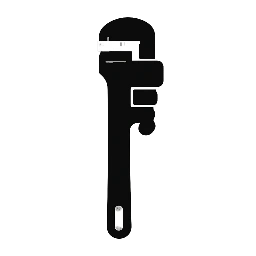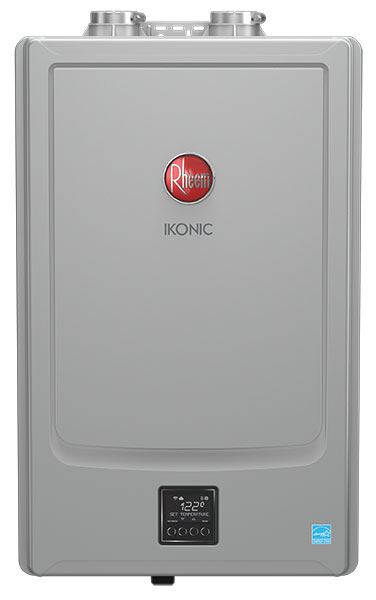Are you wondering how often to service your Rheem tankless water heater to ensure peak performance and extend its lifespan? This in-depth guide provides clear recommendations, explains the importance of regular maintenance, and outlines key steps to keep your hot water flowing efficiently.
The Golden Rule: Annual Servicing
For most Rheem tankless water heaters, the general recommendation is to have them serviced at least once every year. This annual service typically involves flushing the system to remove mineral buildup and inspecting various components.
Factors That Influence Service Frequency
While annual servicing is a good baseline, several factors can influence whether you need more or less frequent maintenance:
- Water Hardness: This is the most critical factor. If you live in an area with hard water (high mineral content like calcium and magnesium), you may need to flush your Rheem tankless water heater every six months to nine months. Hard water accelerates the buildup of limescale, which acts as an insulator, reducing heating efficiency and putting a strain on the unit. You can often find information about your local water hardness from your municipal water provider.
- Usage: A household with high hot water demand (e.g., a large family, frequent showers, multiple appliances using hot water simultaneously) might benefit from more frequent checks, even if the water isn’t excessively hard.
- Unit Age: Older units, while still reliable, might benefit from slightly more frequent inspections to catch potential issues early.
- Manufacturer Recommendations: Always refer to your specific Rheem tankless water heater’s user manual. Rheem provides detailed guidelines for maintenance, and adhering to these recommendations is often crucial for maintaining your warranty.
Why is Regular Servicing So Important for Your Rheem Tankless?
Neglecting tankless water heater maintenance can lead to a host of problems, including:
- Reduced Efficiency and Higher Energy Bills: Mineral buildup on the heat exchanger prevents efficient heat transfer. This forces your unit to work harder and consume more energy to heat water, leading to inflated utility bills.
- Inconsistent Hot Water: Scale buildup can impede water flow, resulting in fluctuating water temperatures, or even periods of lukewarm or cold water.
- Reduced Water Pressure: Blockages due to mineral deposits can restrict water flow through the unit, leading to a noticeable drop in hot water pressure.
- Strange Noises: Popping, cracking, or banging noises often indicate significant mineral buildup as water heats and expands trapped within the scale.
- Premature Unit Failure: Over time, unaddressed scale can corrode internal components, leading to leaks and irreversible damage, ultimately shortening the lifespan of your expensive appliance.
- Voided Warranty: Many manufacturers, including Rheem, require documented regular maintenance to keep your warranty valid. Failure to service your unit as recommended could mean you’re on the hook for costly repairs.
- Error Codes: Modern Rheem tankless water heaters often display error codes when there are issues like restricted flow or overheating due to scale.
Key Maintenance Tasks for Your Rheem Tankless Water Heater
While some tasks are best left to a professional, understanding the core maintenance procedures can help you stay proactive:
- Flushing (Descaling) the Heat Exchanger: This is the most crucial maintenance task. It involves circulating a descaling solution (typically white vinegar or a specialized descaler) through the unit to dissolve mineral deposits. This process helps restore heat transfer efficiency and prevent blockages.
- DIY vs. Professional: While there are DIY kits available, flushing can be a bit complex and requires specific equipment (a submersible pump, hoses, and a bucket). If you’re not comfortable with plumbing, or if your unit is still under warranty, it’s highly recommended to hire a qualified plumber to perform this service. They have the expertise and tools to do it safely and effectively.
- Inspecting and Cleaning the Inlet Water Filter: Your tankless water heater likely has an inlet filter designed to catch sediment before it enters the unit. This filter should be periodically inspected and cleaned to ensure proper water flow. This is often a simpler task that many homeowners can do themselves by carefully following the manual.
- Checking the Pressure Relief Valve (TPR Valve): This safety device is designed to release pressure if it builds up to unsafe levels. It should be tested periodically to ensure it’s functioning correctly. Refer to your Rheem manual for specific instructions on how to safely test the TPR valve.
- Inspecting for Leaks and Corrosion: During any maintenance check, visually inspect the unit and surrounding pipes for any signs of leaks, rust, or corrosion. Early detection can prevent more significant damage.
- Cleaning the Air Filter (Gas Models): For gas tankless models, ensuring proper airflow is essential for combustion. Some units have an air filter that may need cleaning or replacement.
- Inspecting Venting (Gas Models): Ensure the exhaust and air intake vents are clear of obstructions, especially in areas with heavy snowfall or debris.
When to Call a Professional
While some basic checks can be done by homeowners, it’s always best to call a qualified plumber for:
- Annual flushing/descaling: Especially if you have hard water or are unsure about the process.
- Any error codes displayed on your unit.
- Persistent issues with hot water temperature or pressure.
- Unusual noises, smells, or visible leaks.
- Installation or replacement of parts.
A professional can diagnose underlying issues, ensure the unit is operating safely, and help extend its lifespan.
Proactive Steps to Maximize Your Rheem Tankless Water Heater’s Life
Beyond scheduled servicing, consider these proactive measures:
- Install a Water Softener: If you have consistently hard water, a whole-house water softener can significantly reduce mineral buildup in your tankless water heater and all other plumbing fixtures, greatly extending their lifespan and reducing maintenance needs.
- Monitor Water Quality: Be aware of your home’s water quality. If you notice rusty water or significant sediment, it might indicate a need for more frequent maintenance or a water treatment solution.
- Regular Visual Inspections: Occasionally check around your unit for any signs of leaks or unusual conditions.
By understanding the importance of regular servicing and adhering to these guidelines, you can ensure your Rheem tankless water heater provides reliable, energy-efficient hot water for years to come.


Leave a Reply